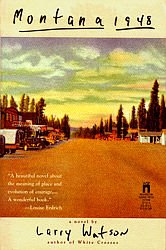What I am seeing across the broad spectrum of the Church is still a conundrum to me. I appreciate history very much and love reading about the history of the church. Though both raised in traditional churches (Sally Methodist, me Lutheran) we have come up as adults since 1972, through the ranks of non-denominationalism. As you can read at my website, our non-denominational experience failed us several times. In the course of our "Walk" we have visited both traditional and non-denominational churches. I love the freedom and liberty found (at least to a degree) in the non-denominational setting. But because I also love the rich history of the church, I am drawn to the traditional things we encounter at the more traditional services.
The conundrum for me is finding the richness of the historic and traditional elements mixed just right with the freedom and liberty of the Spirit.
Overall, what I am seeing is this: The church is people. Regardless of whether they come together and sit in pews on Sunday morning, or gather in someone's home on a Friday night, the church is the people of God. The form, the structure, the meeting place, the order of service, the way in which the leadership is organized, all are secondary.
The church is an organism, not an organization. What happens is that because of our sinful nature, we humans tend to turn that which is organic into something inorganic. Our systems, our programs, our methodologies and so forth, morph into idols of our own hands. I've seen it in denominational and non-denominational churches alike. Also, people in positions of leadership can sometimes lose sight of the fact that they are really simply servants. Possessing a weekly pulpit or some other power position can become intoxicating. Sometimes pastors and leaders forget that the church does not exist for them to have a job, or to find and explore their own identity, or to carry out their own personal goals, or vision, or agenda. The church exists to glorify God by revealing Christ to the world. Pastors and leaders are mere facilitators. We are the true ministers. After a while, the call and anointing of leadership can blind.
Our response, and I am saying this as one who is himself still healing from and struggling with the wounds of church leaders failing me, is to understand that our flawed leaders are mere humans, just like us, and to, as much as God enables us, show grace. At the same time, we may be called upon to confront (in a gentle, loving way of course). Sometimes leaders run amok and when the error is called to their attention, they will humbly acknowledge it and repent. I've seen this happen. Other times their pride will get in their way and they will reject our efforts to help them see their errors. I've seen this happen, too. But we must always come humbly, and respectfully, for though they are flawed, they are still God's representatives to us.
God is neither anti-institution nor anti-organization. These things are, if you will, necessary evils to help facilitate the work of Christ in His church, the ugly exterior scaffolding in place to help construct the Church. The scaffolding is not the Church but is often mistaken for the Church. But the bride is pure because the bride has had her garments washed in the blood of the Lamb. The bride is organic. The bride is the people of God. It is the non-organic scaffolding that we are having problems with, not the organic church. I am mixing metaphors here. But we must not let the ugly institutional, man-constructed scaffolding keep us from seeing the organic, living, breathing Church the Jesus is building behind it.
 1) Thomas Jefferson condemned slavery with his words, not his deeds.
1) Thomas Jefferson condemned slavery with his words, not his deeds.
